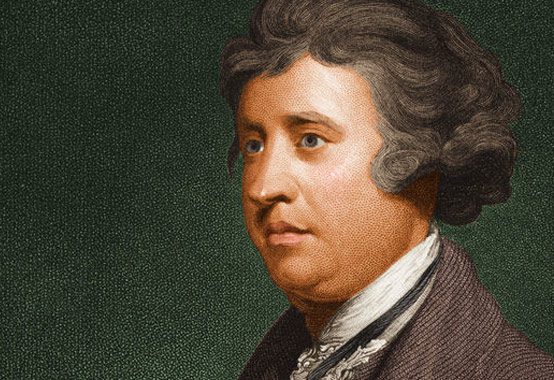On the occasion of our revamped website’s debut, we re-present the editorial that accompanied our new print design in September — a restatement of The American Conservative’s principles.
The biggest loss conservatives suffered in recent years was not the election of Barack Obama in 2008 or the defeat of the last Republican Congress in 2006. It wasn’t the passage of the president’s healthcare reform or nearly $1 trillion stimulus package, nor any other legislative setback. Conservatives had already lost something far more basic—their moorings.
Edmund Burke was never more eloquent than when denouncing the Penal Laws that circumscribed the liberties of Ireland’s Catholics. That system, he wrote in 1792, was “as well fitted for the oppression, impoverishment and degradation of a people, and the debasement, in them, of human nature itself, as ever proceeded from the perverted ingenuity of man.” This was Burke’s opinion at a time when Catholics were synonymous with subversion—didn’t they owe highest allegiance to the pope? To fearful Englishmen, “papists” were “the apex of all evil” above “all Pagans, all Mussulmen.”
Burke demanded civil liberty—“a liberal and honourable condition”—for them anyway. He was not oblivious to minority dangers, nor indifferent to public orthodoxy. But who can imagine him alongside such Islam-baiters as Herman Cain or Pamela Geller, shouting about Sharia or boasting of plans to exclude an unpopular minority from public office?
A great imposture has taken place. Whatever else the likes of Cain or Geller may be, if Burke is a conservative, they are not.
What is true for civil liberties applies to foreign policy as well. From John Quincy Adams to Robert A. Taft, American conservatives have been realists, not in the Henry Kissinger sense but in their worldly understanding of the limits of power, both our own and our rivals’.
The ideological intensity of the Cold War muted this tradition. But even then Barry Goldwater fought wasteful Pentagon appropriations, while Ronald Reagan undertook no Mideast nation-building, notwithstanding the murderous bombing of the Marine barracks in Lebanon. What would Goldwater have made of the $388 billion F-35 Joint Strike Fighter program?
The point is not to hold up any of these men, even Burke, as right in all respects. They illustrate rather than define conservative style.
In contrast, the latter-day right possesses what Michel Chevalier called the morale of an army on the march: no time for reflection, no room for dissent, there are liberals to vanquish.
Nine years ago The American Conservative took its stand athwart this mentality. From the beginning, the magazine reclaimed conservatism’s discarded patrimony while reaching out for new ground as well. Within the first three months, thinkers as disparate as diplomatic historian Paul Schroeder and Norman Mailer—a sometime “left conservative”—had graced these pages.
TAC is not libertarian or what was once called “paleoconservative.” It aspires to be conservative as Burke was, broad-minded but firmly rooted, with an emphasis on securing peace and a well-grounded liberty at home. One of our themes has been the local, not as an “-ism” but as the texture and matrix of civil life, urban as well as rural. The recovery of political economy too, in the face of liberal and neoliberal dogmas alike, is part of this. (The muse is Jane Jacobs, not Ayn Rand.)
For over 20 years conservatives have been denied their name and heritage, fobbed off with the counterfeit goods of partisanship and neoconservative ideology. Today the plight of the country is too grave to accept any substitutes; it’s time for conservatives once more to speak in their own voice.
— Ed.


